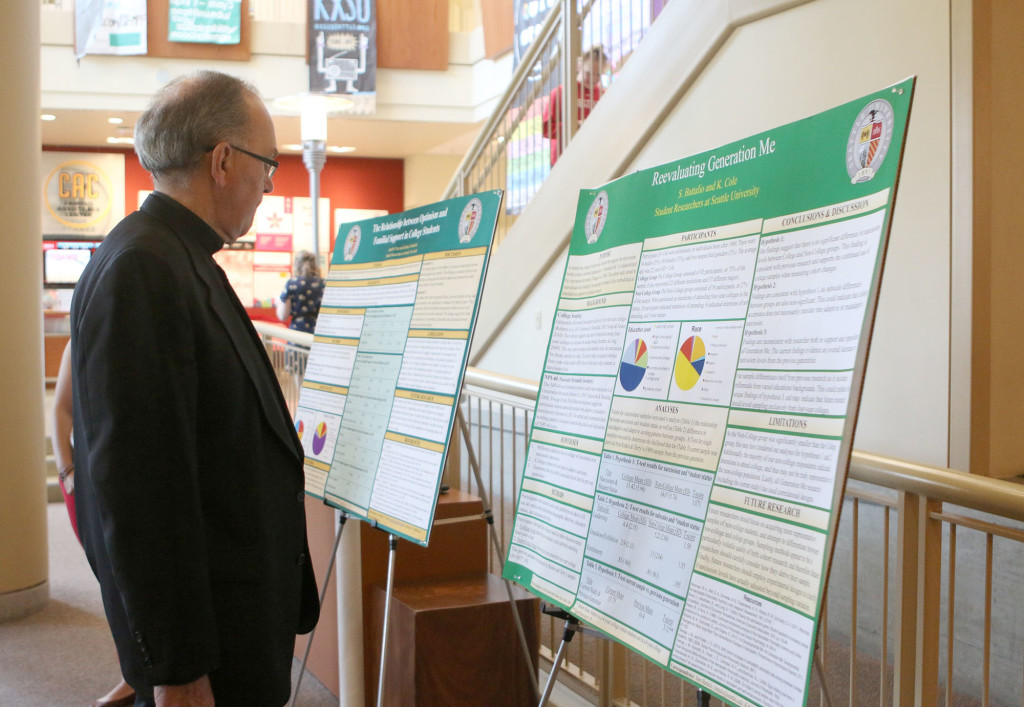Growing up five minutes away from Folsom Prison, sophomore English and French major Morgan Kimball never understood the term ‘prison town.’
“People ask me where I’m from, I say Sacramento. They ask where specifically, I say about five to 10 minutes from Folsom. And they say, Folsom? Folsom Prison? That’s immediately what they say,” Kimball said.
Her neighbors were a combination of prison staff who worked at Folsom, service employees and families of inmates who had moved to be close to their loved ones. She never saw an inmate as some distant idea; rather, these were always people with families and lives of their own.
That’s one of the reasons she chose to research educational programs within the California State prison system—to delve deeper into a topic that was at once familiar and unfamiliar. By comparing a diverse array of successful programs in states like Ohio and Texas, she was able to show the social and economic benefits of providing education to inmates.
Her research project “Educational and Vocational Programs in California State Prisons” was one of many different projects that were presented and celebrated at the Seattle University Undergraduate Research Association exposition last Friday. SUURA is an ongoing initiative to help promote all research at Seattle U. The event showcased work done by students of all backgrounds, specializations and academic levels.

Father Steve reads Jennifer Cruz’s project, “The Relationship between Optimism and Familial Support in College Students.” 123 students presented research projects at Seattle U’s undergraduate research conference, the annual “Celebration of Student Scholarship”. photo by Taylor de Laveaga
Associate Provost for Research and Graduate Education Bill Ehmann sees the purpose of SUURA as creating an environment of care. At Seattle U, he hopes that further research as well as events like these help to provide a foundation for students to hone their dreams and skills in a research community that is ethical and supportive.
“Everyone’s familiar with the concept of developing the whole person. In a research environment we’re also interested in the whole problem,” Ehmann said.
In her paper, “To Play or not to Play: Sport’s Role in Reconciliation Efforts in Post-Conflict Societies,” Senior international studies and Spanish double major Allison Dimich found the opportunity to connect her passion with an ethical purpose.
“I always wanted to work with sports, but I wanted to make it meaningful,” she said.
In delving into what she considers an under-researched topic, Dimich found not only a connection with her love of sports and her drive to make a difference, but also broadened her future plans. Dimich intends to apply for a fellowship or enter the field of international relations, determined to continue her work on new types of peace programs.
For senior international studies major Ianthie Jayakody, her research also helped guide her academic career. Her project, titled “The Key to Success: An Analysis of Woman’s Cultural Roles and the Success of Woman’s Activism During the 2011 Revolution and Post-Revolutionary Egypt,” focused on highlighting the crucial role that women played in the Arab Spring, especially in Egypt.
Jayakody has reshaped her path after this project, now wanting to apply for a fellowship to further research Middle Eastern studies and women’s liberation movements.
“I think it’s important because there are misconceived notions about the Arab world and about Muslims in general. I have, for a couple years now, wanted to combat this idea of islamophobia,” Jayakody said.
She has always been fascinated by not only the cultural and geographic uniqueness of the region, but also why it has been so neglected in recent years. Jayakody sees this as one of the strengths of SUURA: being able to give students the time and tools to truly follow their passion.
Ehmann reiterated this idea, and stressed that student research at Seattle U is open to all who want to follow their passion.
“You can start with anything… Jump in, start, and let it unfold,” Ehmann said.
For Kimball, SUURA not only allowed her to follow her interests, but also connected her with a broader research community. From working with her classmates on honing in on her project to sharing her work with other SUURA presenters, she agreed that this event is as much an exhibition as it is a celebration.
“The SUURA conference is a really great opportunity for professors, for undergraduate students, for graduate students to just come together and present their research,” Kimball said.








